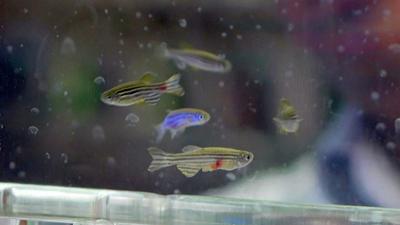Kennedie Bailey was a healthy, happy fifth grader until this past summer, when doctors diagnosed her with rhabdomyosarcoma; a rare form of childhood cancer.
"He did a biopsy, and then a few weeks later, we found out the results, and that's how we learned that I had rhabdomyosarcoma," Kennedie recalled.
"I mean, anytime you hear something like that, it's gonna be a shocker to you," said Chris Bendele, Kennedie's stepfather, "especially when you see them healthy, and then you find out, oh you know."
Although rare, Kennedie's cancer is treatable. The larger problem is when the cancer recurs. so researchers are utilizing zebrafish, in which they transplant cancerous tumors and keep a careful eye on them.
"You can look at it under the microscope and follow it for days, months and years, and we can follow a cancer, how cancers form, and because they're transparent, we can look in a tumor and say these are stem cells, this is a blood vessel. What are they doing?" explained Myron Ignatius, a researcher at UT Health San Antonio.
Hopefully not recurring, because the survival rate drops dramatically. There is no treatment for the 20 percent of patients who relapse.
"My expectation for the research study would be that it leaves us to be able to identify which patients are going to have a recurrence sooner, and then also ultimately being able to end up to treat those recurrences," said Dr. Aaron Sugalski, a hematologist/oncologist at UT Health San Antonio.
"Whatever they can find out, not only for her but for other kids, you know... it's extremely important," said Bendele.
Ignatius and his team keep between 10,000 and 15,000 fish in the laboratory, working around the clock to help find a cure for children like Kennedie.







































